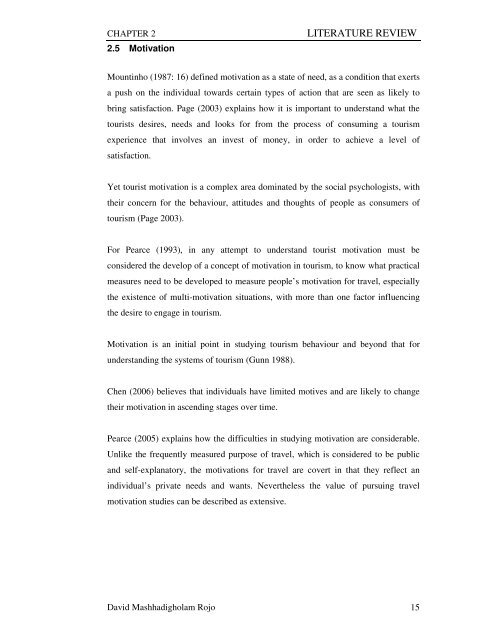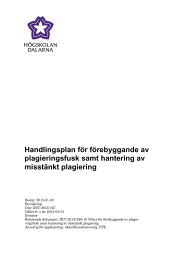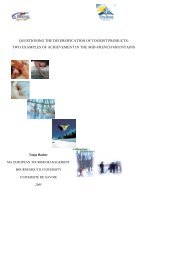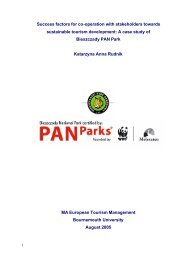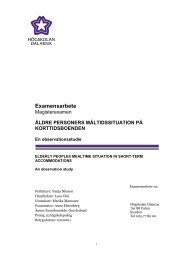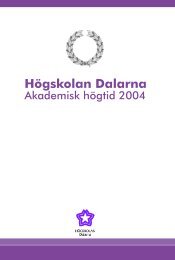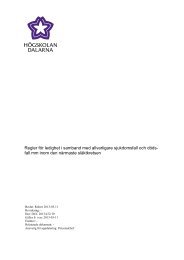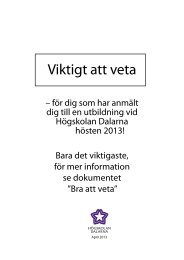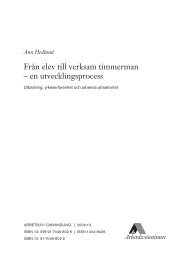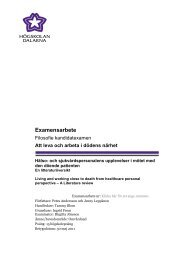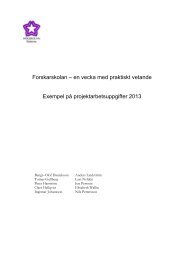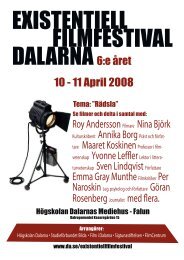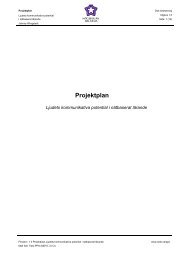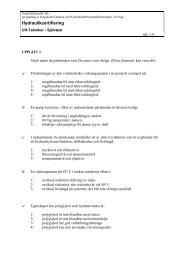Religious Tourism: The Way to Santiago
Religious Tourism: The Way to Santiago
Religious Tourism: The Way to Santiago
Create successful ePaper yourself
Turn your PDF publications into a flip-book with our unique Google optimized e-Paper software.
CHAPTER 2 LITERATURE REVIEW<br />
2.5 Motivation<br />
Mountinho (1987: 16) defined motivation as a state of need, as a condition that exerts<br />
a push on the individual <strong>to</strong>wards certain types of action that are seen as likely <strong>to</strong><br />
bring satisfaction. Page (2003) explains how it is important <strong>to</strong> understand what the<br />
<strong>to</strong>urists desires, needs and looks for from the process of consuming a <strong>to</strong>urism<br />
experience that involves an invest of money, in order <strong>to</strong> achieve a level of<br />
satisfaction.<br />
Yet <strong>to</strong>urist motivation is a complex area dominated by the social psychologists, with<br />
their concern for the behaviour, attitudes and thoughts of people as consumers of<br />
<strong>to</strong>urism (Page 2003).<br />
For Pearce (1993), in any attempt <strong>to</strong> understand <strong>to</strong>urist motivation must be<br />
considered the develop of a concept of motivation in <strong>to</strong>urism, <strong>to</strong> know what practical<br />
measures need <strong>to</strong> be developed <strong>to</strong> measure people’s motivation for travel, especially<br />
the existence of multi-motivation situations, with more than one fac<strong>to</strong>r influencing<br />
the desire <strong>to</strong> engage in <strong>to</strong>urism.<br />
Motivation is an initial point in studying <strong>to</strong>urism behaviour and beyond that for<br />
understanding the systems of <strong>to</strong>urism (Gunn 1988).<br />
Chen (2006) believes that individuals have limited motives and are likely <strong>to</strong> change<br />
their motivation in ascending stages over time.<br />
Pearce (2005) explains how the difficulties in studying motivation are considerable.<br />
Unlike the frequently measured purpose of travel, which is considered <strong>to</strong> be public<br />
and self-explana<strong>to</strong>ry, the motivations for travel are covert in that they reflect an<br />
individual’s private needs and wants. Nevertheless the value of pursuing travel<br />
motivation studies can be described as extensive.<br />
David Mashhadigholam Rojo 15


